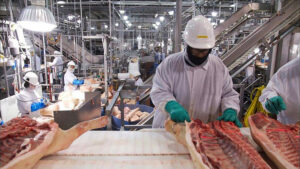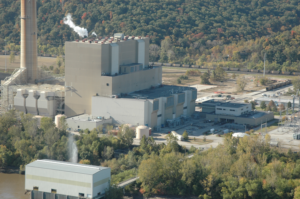9:02
Brief
News Briefs
Buttigieg puts greenhouse gas reduction at center of Biden transportation policy
Former South Bend mayor Pete Buttigieg offered an unapologetic defense of President Joe Biden’s vision for improved transportation and greenhouse gas reductions during a Senate hearing to consider Buttigieg’s nomination for U.S. transportation secretary on Thursday.
“We need to build our economy back, better than ever, and the Department of Transportation can play a central role in this,” Buttigieg said.
The former Democratic presidential nominee largely enjoyed broad support from the members of both parties on the Senate Committee on Commerce, Science and Transportation.
But Republicans from Florida and Texas challenged him on the new administration’s “Green New Deal” proposals, and several senators peppered Buttigieg with questions about local initiatives or problems in Michigan, Minnesota, Wisconsin and Tennessee, ranging from self-driving vehicles to bridge maintenance.
He said there was “bipartisan appetite for a generational opportunity to transform and improve America’s infrastructure.”
Cost of climate plans
Buttigieg’s nomination comes at a time when the incoming administration is looking to find areas of bipartisan cooperation. Such efforts could reinforce Biden’s calls to unite as a country.
But they also could help Biden’s agenda move through Congress, where Democrats have a narrow majority in the U.S. House and the Senate is split 50-50 between the two parties.
An infrastructure package could fit that bill, especially because Congress has less than a year before it must pass a new spending plan for some of the most prominent transportation concerns, including funding for transit and highways.
Still, Buttigieg, who frequently appeared on Fox News to promote Biden’s candidacy, sparred with Republican senators at the hearing over the cost of Biden’s climate plans and their potential impact on the economy.
Biden wants to spend $32 billion in the short term to help financially beleaguered transit agencies, install half a million charging stations for electric vehicles across the country, and increase fuel economy standards for new vehicles.
The transportation nominee told skeptical GOP lawmakers that the country could reduce carbon dioxide pollution while still sustaining a healthy economy.
“Ultimately, we cannot afford not to act on climate,” Buttigieg told U.S. Sen. Rick Scott, a Florida Republican who questioned Buttigieg about his support for the “Green New Deal.” “The question becomes: How can we do that in a way that creates economic benefit in the near term, as well as preventing catastrophe in the long term?”
Sen. Ted Cruz, a Texas Republican, pressed Buttigieg on one of Biden’s first official acts in office: revoking the permit for the construction of the Keystone XL oil pipeline. The 1,200-mile pipeline would transport Canadian oil between Montana and Nebraska, where it would link up with existing pipelines to Illinois and the Gulf Coast.
Cruz said the pipeline construction project would have supported 1,200 “good-paying union jobs” while it was being built and 11,000 jobs in the long run.
“With a stroke of the pen, President Biden has told those 11,000 workers, those union workers, ‘Your jobs are gone,’” Cruz said. “Mr. Buttigieg, what do you say to those workers whose jobs have just been eliminated by presidential edict?”
“The most important thing is to make sure that we make good on the promise of the president’s climate vision as being one that on net creates far more jobs—millions, we hope,” Buttigieg responded. “We’ll have to do a lot of work to make sure that’s real. But getting this right means ensuring that there are more good-paying union jobs for all Americans delivered through that infrastructure vision.”
Cars, bridges and buses
Overall, senators used their time with Buttigieg to push items for their home states.
Sen. Gary Peters, a Michigan Democrat, encouraged Buttigieg to work with Congress on efforts to help the auto industry test and roll out more self-driving vehicles. Peters also pressed the incoming secretary to make it easier for people to buy and use electric vehicles.
Buttigieg said that would be a top priority for the Biden administration.
“Industry is increasing EVs to the point where they pencil out, or represent a cost savings to a consumer,” Buttigieg said. “The more that’s the case, the more the real hesitation to acquire one will be range anxiety—worrying about whether you can get to where you’re going without having this type of charge.”
Sen. Amy Klobuchar, a Minnesota Democrat, urged Buttigieg to consider making it easier for rural areas to compete for federal grants. “Sometimes I think going back to where it used to be called earmarks… would be helpful, especially for some of the rural areas, because we have a good sense of what’s going on in our states,” she added.
Buttigieg said he understood the frustration, and hoped that the USDOT could do a better job of explaining to localities why their projects did not meet the threshold for grants for which they applied.
Klobuchar reminded Buttigieg that Minnesota was where a bridge in downtown Minneapolis collapsed in the middle of the day, killing 13 people. She encouraged him to push for the rehabilitation of a bridge between Duluth, Minn., and Superior, Wis.
“So often states, counties and other local governments are expected to maintain these bridges, but don’t have the resources to do it,” Buttigieg said.
“It’s another example of how we need a major and significant investment, as a safety concern, to enhance, upgrade and maintain bridges and other key critical infrastructure assets across the country.”
U.S. Sen. Tammy Baldwin, a Wisconsin Democrat, encouraged Buttigieg to close “loopholes” to laws that require transit agencies to buy equipment made in the United States.
She said that commonly used transportation equipment, whether it be traffic lights, traffic signs or construction cones, should be made in the country. Buttigieg seemed agreeable to the idea but did not make any firm commitments.
Buttigieg also told U.S. Sen. Marsha Blackburn, a Tennessee Republican, that he would work with the U.S. Treasury Department to move along relief money for bus lines that Congress originally set aside in a March coronavirus relief package.
“The motorcoach industry … they are functioning at less than 10% of the capacity for where they were in 2019. This is truly a dire situation,” Blackburn said. “They were the first to be shut down. They are going to be among the last to open back up. This has happened to them through no fault of their own. And it is going to be imperative that there be a response to them sooner rather than later.”
Pedestrian-friendly streets
Buttigieg touted his work as mayor overhauling the streets in downtown South Bend to better accommodate pedestrians and cyclists, along with auto traffic. It appears the Biden administration will push more of those kinds of infrastructure rehabilitations around the country.
“There are so many ways that people get around,” Buttigieg said. “Often we’ve had an auto-centric view that has forgotten historically about all the other different modes. We want to make sure anytime we’re doing a street design that it enables cars, bicycles, pedestrians, businesses and any other mode to coexist in a positive way.”
The USDOT announced dozens of new nominations for key posts Thursday, on top of several that had been unveiled previously.
Polly Trottenberg, who led New York City’s transportation department and spearheaded its “Vision Zero” efforts to reduce traffic deaths, has been named to be Buttigieg’s second-in-command at USDOT.
The administration is also bringing on board Robin Hutcheson, the former director of the Minneapolis Department of Public Works, who will become deputy assistant secretary for safety policy at the DOT. Hutcheson is also the former president of the National Association of City Transportation Officials.
Our stories may be republished online or in print under Creative Commons license CC BY-NC-ND 4.0. We ask that you edit only for style or to shorten, provide proper attribution and link to our website. AP and Getty images may not be republished. Please see our republishing guidelines for use of any other photos and graphics.





